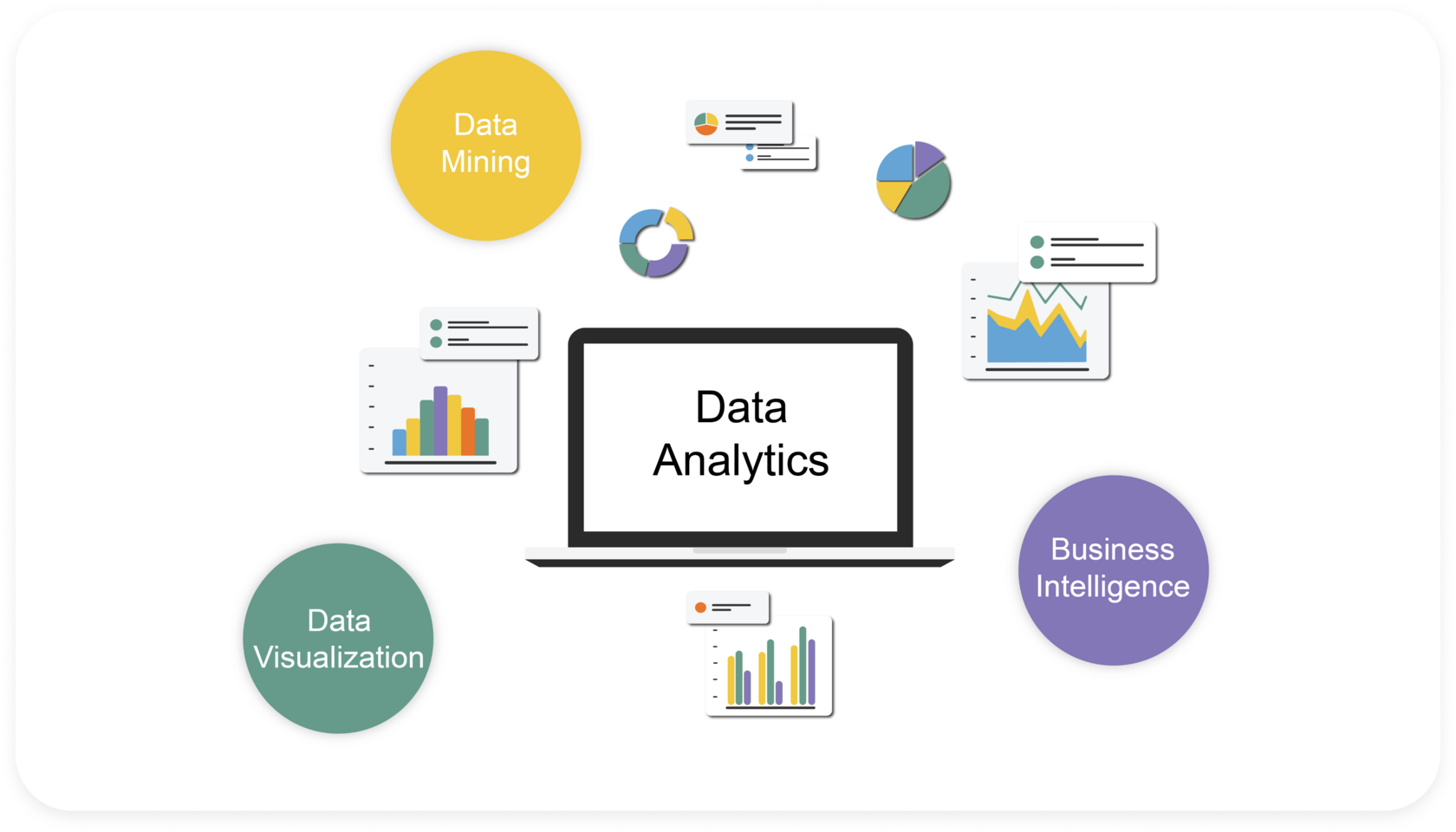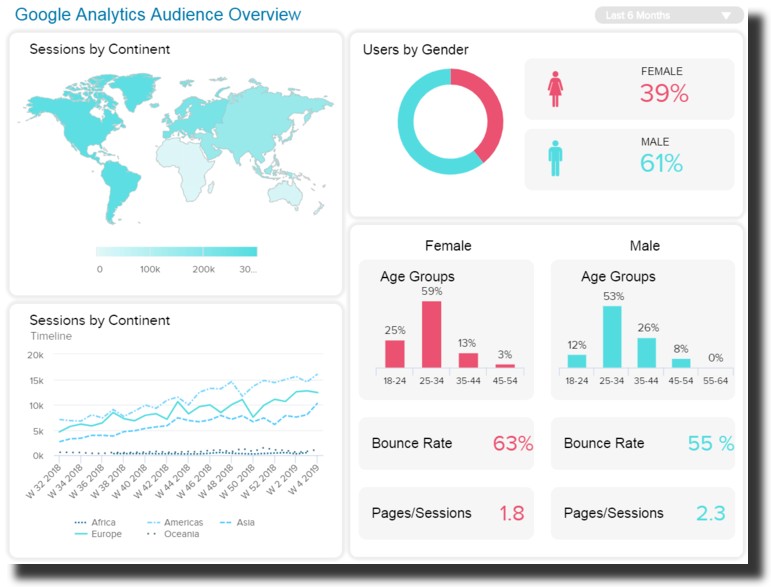Take Full Advantage Of Growth: Just How Analytics Drive Better Methods
In today's data-driven landscape, companies significantly acknowledge the crucial duty of analytics in shaping effective development strategies. By taking advantage of information insights, businesses can refine their operational methods, prepare for market adjustments, and improve consumer interaction. However, the challenge exists not just in accumulating data but in efficiently translating it to drive concrete end results. As we check out the essential benefits and methodologies connected with analytics, a crucial question emerges: exactly how can companies ensure they are leveraging these understandings to open their complete possibility? The answer might redefine the future of critical planning.
Comprehending Data Analytics
Information analytics is a systematic computational analysis of data that enables organizations to discover purposeful patterns and understandings. This process includes a selection of strategies, including analytical evaluation, anticipating modeling, and information mining, which collectively aim to change raw information right into workable details - Analytics. By employing these approaches, organizations can make enlightened choices that are rooted in empirical proof instead of intuition alone
The foundation of data analytics depends on its capacity to deal with substantial amounts of details from diverse sources. This consists of structured data, such as databases, and disorganized information, consisting of social media sites communications and customer comments. Through using specialized software application and devices, analysts can extract and process this information effectively, recognizing trends and connections that may not be instantly evident.
Recognizing information analytics likewise includes recognizing the value of data high quality and honesty. Exact and reliable information is vital for significant evaluation; hence, companies need to implement durable information governance practices. The iterative nature of analytics permits for continuous improvement and enhancement of approaches, making certain that companies remain agile in the face of altering market characteristics and consumer habits.
Trick Benefits of Analytics

One of the key benefits of analytics is its ability to provide actionable understandings. Organizations can rapidly analyze huge quantities of information, discovering patterns that may not be right away apparent. This aids in anticipating market changes and adapting methods appropriately. Furthermore, analytics fosters a culture of evidence-based decision-making, minimizing dependence on instinct and uncertainty.
An additional substantial benefit is improved customer understanding. Analytics devices make it possible for businesses to section their audience, track consumer behavior, and individualize advertising initiatives. This targeted strategy not just enhances client interaction yet also drives higher conversion rates.

Implementing Analytics Methods
To fully recognize the benefits of analytics, organizations need to embrace structured techniques for implementation. This starts with clearly specifying purposes that align with wider company goals. By establishing details, measurable results, organizations can focus their analytics efforts on locations that produce the greatest roi.
Following, companies should focus on data governance to make certain the stability and safety and security of the data being evaluated. This entails establishing procedures for data collection, storage space, and access while adhering to relevant policies. Making sure premium information is critical for creating significant insights.
Moreover, promoting a culture of data-driven decision-making is necessary. This requires training workers to translate analytics searchings for and encouraging collaboration across departments. When groups recognize the worth of analytics, they are more probable to integrate insights into their everyday operations.
Last but not least, companies ought to frequently examine and fine-tune their analytics methods. The landscape of data and modern technology is consistently developing, and remaining versatile will permit companies to utilize new devices and methodologies efficiently. By carrying out these organized approaches, organizations can maximize the influence of their analytics initiatives and drive lasting growth.
Tools for Effective Analysis
Reliable analysis counts on a selection of devices that facilitate the removal of understandings from information - Analytics. These devices can vary from easy spread sheet applications to innovative equipment learning platforms, each offering a special objective in the analytical process
Data visualization software application, such as Tableau and Power BI, plays Your Domain Name a vital function in changing complex datasets right into reasonable graphical depictions. These tools make it possible for analysts to recognize trends and patterns rapidly, enabling more enlightened decision-making.
Statistical evaluation software application, like R and SAS, offers innovative capacities for carrying out thorough evaluations, including regression, hypothesis screening, and predictive modeling - Analytics. These functions encourage companies to draw meaningful final thoughts from their information, identifying possible opportunities and dangers
Additionally, data source monitoring systems such as SQL and NoSQL databases offer the essential facilities for saving and inquiring large quantities of information effectively. They make sure that information is organized and accessible for analysis.
Lastly, organization knowledge systems integrate various data resources, supplying a detailed view of business efficiency. By using these devices properly, companies can boost their logical capabilities, enabling them to create techniques that make best use of development and improve general efficiency.
Situation Research Studies of Success
Effective organizations frequently leverage information analytics to drive impactful methods, as evidenced by numerous notable situation researches. By utilizing these understandings, Netflix has actually efficiently tailored its content suggestions, resulting in increased individual involvement and client retention.

In addition, Starbucks utilizes information analytics to determine optimum store locations and improve its item offerings. By taking a look at client demographics and buying patterns, Starbucks successfully recognizes high-potential markets and customizes its menu to local preferences, driving sales and customer commitment.
These situation studies highlight that effective usage of information analytics can cause critical advantages, fostering technology and development within organizations across different markets.
Verdict
In conclusion, the integration of analytics right into organizational strategies dramatically improves decision-making processes and promotes sustainable development. By leveraging data-driven insights, companies can recognize fads, expect market changes, and maximize operations. The effective application of analytics devices additionally supports dexterity and development, allowing companies to browse competitive landscapes with greater accuracy. Eventually, a dedication to analytics not only drives immediate performance enhancements but also safeguards long-lasting success in an ever-evolving marketplace.
Information analytics is a systematic computational evaluation of data that enables organizations to discover purposeful patterns and insights.Comprehending data analytics additionally involves recognizing the importance of data high quality and honesty. Exact and trustworthy data is vital for purposeful evaluation; thus, companies additional hints need to implement robust data administration techniques.Next, organizations ought to prioritize data governance to guarantee the click for more honesty and protection of the information being examined.Effective companies commonly leverage data analytics to drive impactful strategies, as confirmed by several significant case studies.